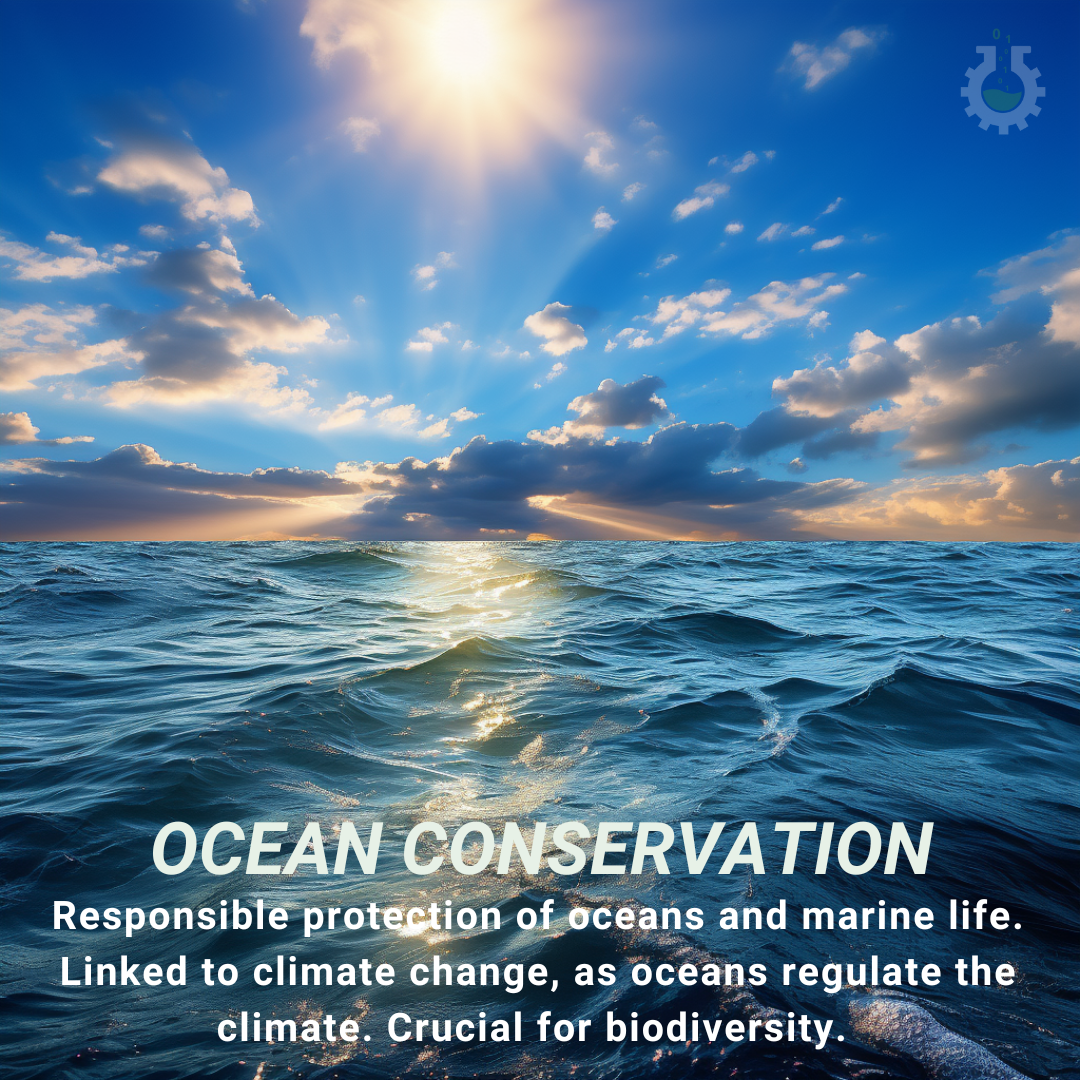November 14, 2023
Climate Change Poster Collection of the Day – Ocean conservation
Book a Demo
Today’s Climate Change Poster Collection focuses on Ocean conservation. The importance of the ocean to the world’s economy is immeasurable. Annually, the ocean contributes an astounding $1.5 trillion to the global economy. Beyond its economic value, it also supports the livelihoods of 10-12% of the world’s population, providing a lifeline for billions of people who depend on it for their day-to-day living.
But the ocean’s significance extends beyond economic and livelihood sustenance. Our seas and oceans’ marine ecosystems play a crucial role in curbing climate change and preserving the overall health of our planet. These ecosystems, ranging from coral reefs to the deep abyssal plains, function as the Earth’s lungs, absorbing enormous amounts of carbon dioxide and releasing oxygen into the atmosphere. They also serve as crucial buffers against climate change impacts, providing protection for coastal communities against storm surges and erosion.
Recognizing the pivotal role of the ocean in our lives and for the planet, World Ocean Day was established and has since initiated several major initiatives aimed at preserving and conserving our oceans. These initiatives involve international bodies like the Commonwealth and G7, highlighting the global nature of ocean conservation and the need for concerted, worldwide efforts.
One of the key initiatives underlined during World Ocean Day is the Commonwealth Blue Charter on Ocean Action. This charter brings together 54 countries to actively coordinate, collaborate, and share best practices in sustainable ocean development. Similarly, Kenya’s inaugural Blue Economy Conference was also highlighted, where hundreds of stakeholders gathered to discuss strategies for sustainable economic use of the ocean without degrading its health.
Moreover, the concept of “blue carbon” ecosystems, including mangroves, seagrass meadows, and kelp forests, has gained prominence in recent years due to their effectiveness in sequestering carbon dioxide. These ecosystems also safeguard coastal infrastructure against the impacts of climate change, acting as a natural barrier against storm surges and rising sea levels.
The potential of these ecosystems is immense. Coastal wetlands, for instance, significantly reduce emissions. If we were to halt just half of their annual loss, emissions could be reduced by 0.23 gigatons, a figure similar to Spain’s total emissions in 2013.
Given their significant potential for mitigating climate change, countries are repeatedly urged to incorporate blue carbon ecosystems into their Nationally Determined Contributions (NDCs). These are the plans countries submit to detail their efforts to reduce national emissions and adapt to the impacts of climate change, in line with the goals of the Paris Agreement.
Strategies for incorporating blue carbon ecosystems into NDCs can include the protection and creation of such ecosystems, reforestation of degraded ones, incentives for their preservation, and their inclusion in national greenhouse gas inventories. By embracing and adopting these strategies, we can enhance our efforts to combat climate change, preserve the health of our oceans, and ensure the livelihoods of billions of people around the world.
Discover an inspiring collection of climate change poster.



